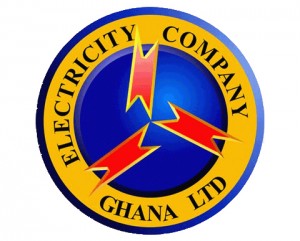Ghana ready to use Millennium Challenge Compact funds to address poverty
 Ghana has met the conditions to, from October, start accessing the first tranche of $279 million under the Ghana Power Compact to transform the Electricity Company of Ghana (ECG) into an effective, credible power distribution company, while strengthening the entire energy system.
Ghana has met the conditions to, from October, start accessing the first tranche of $279 million under the Ghana Power Compact to transform the Electricity Company of Ghana (ECG) into an effective, credible power distribution company, while strengthening the entire energy system.
Under the Second Compact, signed in August 2014, the country is to receive a total of $498.3 million grant from the United States Government, through the Millennium Challenge Corporation, over five years. Ghana is complementing it with $37.4m.
Owura Kwaku Sarfo, the Chief Executive Officer of the Millennium Development Authority (MiDA), who announced this, in Accra, at an Editors’ Forum, said $161.2 million would be invested in projects that would ensure the Financial and Operational Turnaround of ECG.
He said Ghana, realising that it could not address the issues of poverty effectively without the provision of sufficient and sustainable power supply, requested to focus the Second Compact on addressing the weaknesses in the energy system.
Consequently, $65.7 million would also be invested in the Northern Electricity Company (NEDco) towards achieving the same objectives, while 16.3 million dollars would go into Power Generation Improvement, with $25.4 million assigned to energy efficiency and demand side management projects.
Projects for strengthening Regulatory institutions and building their capacities would receive five million dollars, while those for infrastructural upgrades and social inclusiveness would get $10 million.
Owura Sarfo explained that ECG was being prioritised because the many efforts to increase power generation would yield limited results should the constraints and inefficiencies in the distribution side remain unresolved.
It is for this reason, he said, that the Government was bringing on board a concessionaire to invest a minimum of one dollars annually, over a period of five years, to modernise the operations of ECG, improve its revenue collection rates, reduce commercial and technical losses, as well as outages.
“Six companies, with at least 20 per cent Ghanaian ownership, have been shortlisted for bids, and it is our expectation that by October next year, the successful bidder would start operations,” he said.
Answering questions about the impact of the operations of the concessionaire on job security, tariffs, and other issues of national interest, Owura Sarfo gave the assurance that there would be no retrenchment as the agreement to be signed had provisions against that action being taken for at least five years.
Besides, he said, ECG had no problem with overstaffing, therefore, that concessionaire was more likely to engage more hands for its expanded work.
Workers of ECG have over the period, expressed anxiety over their possible job losses in the event of a concessionaire take over, with the threat of an industrial action.
On tariffs, Owura Sarfo said the participation of the concessionaire would not result in any increment as others were speculating.
Rather, he said, its activities towards eliminating commercial and technical losses should lead to savings, which could eventually lower tariffs.
The Public Utility Regulatory Commission would also continue to be in charge of setting tariffs, that is why its capacities would be strengthened to play its supervisory roles.
The Commission would also be responsible for the payment conditions of the concessionaire, who would be paid from the revenue generated through a fund.
On the consumer side, a proposal has also been sent to the Ghana Education Service to consider Energy Conservation in the Curricular of basic schools.
On why the concessionaire would have 25 years to manage the ECG before handing over the assets again to the Government, Owura Sarfo explained that concessionaires usually needed that long periods to ensure maximum efficiency and the gradual recoup of their investments.
To address the challenges that might arise in the course of the engagement, Owura Sarfo said the contract had put in place five-year, 10- year and 15 –year review periods.
Mr John Jinapor, the Deputy Minister of Power, said the cooperation and participation of all stakeholders were critical to perfect the system because progress could not be achieved without changes in the system.
The Energy Commission, Power Ministry and other relevant bodies, he said, would monitor the activities of the concessionaire to ensure that it worked as expected.
But, for now, he said, the concessionaire arrangement appeared to be the best option, but that could be reviewed should Ghanaians find it unworkable after it had been tried for a period.
Cote d’Ivoire and Uganda, he said, had successfully used similar interventions to improve their systems significantly and Ghana was poised to learn from their best lessons, he said.
The second tranche of $190 million dollars would be available in due course.
However, if Ghana is unable to utilise the funds, which is accessed on quarterly basis, within the stipulated period, the grantor would hold the funds.
A grant of $28.9 million was initially given to MiDA as Compact Implementation Fund.
Source: GNA
